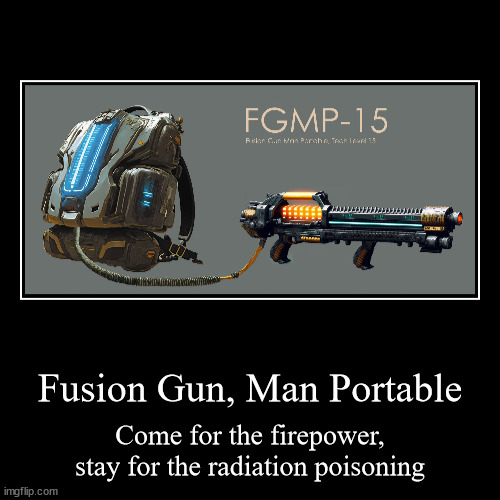After their efforts with 4e's VTT, I'm not surprised they're so happy to be able to show basic functionality
IggythePyro
Looks like I was dead wrong here- turns out there's another JC tweet that says: "If you use a weapon in a way that turns it into an improvised weapon—such as smacking someone with a bow—that weapon has none of its regular properties, unless the DM rules otherwise." So bonking people with a crossbow wouldn't count for GWM because the crossbow isn't heavy when you're not shooting it
That's on me, I've been playing my tavern brawler for too long and overlooked that most people don't have imrpovised weapon proficiency. It looks like using most ranged weapons in melee is maybe improvised for two reasons? Like, the ammunition property makes it improvised, but also the "ranged weapon to make a melee attack" rule makes it improvised. Which I guess lines up if you take it as Javelins being good for melee and throwing, while darts are only really good for throwing- makes sense to me, although it's weird to have the same thing said twice over (a ranged weapon is improvised, but also an ammunition traited weapon is improvised, and only ranged weapons have that trait so they're already improvised in melee)
Yeah, there's a heck of a lot of overlap between Traveller and 40k- they were developed around the same times (classic traveller was '77, Megatraveller was '86, Rogue Trader was '87 and then Traveller: The New Era was '92) so there's a lot of cross-pollination between the two
Far be it for me to advocate starting rules arguments, but RAW I think that works and for flavour I'll always support ways to play paladins as something other than the melee knight in shining armour
Good catch on the Ammunition property, I did miss that- I'm not sure if that goes for weapon traits or just proficiencies, or if it's just a reference to that particular part of the improvised weapons section which specifically calls out ranged weapons in melee.
I do want to be very nitpicky with it- that's what I'm doing here, having fun seeing what the rules technically allow rather than what they actually play like at the table XD
I kind of love the idea that the dart not having the ammunition property means it doesn't count as an improvised weapon when used in melee, because that would mean a dart is just a dagger that weighs a quarter as much and doesn't have the light property (also am I wrong to think that the dagger's thrown property does nothing, since a thrown melee weapon without the thrown property does 1d4 damage with a range of 20/60ft anyway?)
I'd be inclined to agree with you if there wasn't such a specific divide between the flavour text and the content. For instance, the sharpshooter feat doesn't specifically let you make shots that others think are impossible- saying "I use my sharpshooter feat to shoot the BBEG in his castle three hundred miles away" would certainly be a shot that others think are impossible, but I doubt any table would let that fly. Saying "I have the crusher feat, so I'm going to break the enemy's bones to debuff them" would fit directly into the flavour of "You are practiced in the art of crushing your enemies", but it's also not what the feat does. For the halflings, you can take the bountiful luck feat, and then use it, despite the flavour text clearly stating "You're not sure how you do it; you just wish it, and it happens"- thus precluding anyone who knows about the feat or what it does from taking it. Lucky: "You have inexplicable luck that seems to kick in at just the right moment.", but it's actually very explicable, follows predictable rules and doesn't kick in at just the right moment unless the player knows just the right moment to use it.
Ah, my mistake there- I thought that was another one with "attack with a melee weapon". It does make more sense that crossbow bashing would be strength based tho, surprising to see the rules as written following logic XD
Jeremy Crawford's rules are also inconsistent dog shit. That's why we're here, looking at this meme :)
The flavour text for the feats doesn't actually give the details of what rules they have. That's the issue- the rules are vague, rely on other bits of context which may or may not be considered part of the rules depending on the reader, and are followed up by a series of twitter rulings which tend to muddy things more often than they clear them up. In 5e, RAW, you can bonk people with a crossbow and use the third point on the sharpshooter feat- same as how in 3.5e, RAW, a chicken infested commoner could pull infinite chickens out of their spell component pouch, or an iron heart surge could take out an anti magic field, or drowning could heal someone from -1000HP back to 0. The point isn't "Hey, look at these things you should totally do in the game", the point is "here's what the rules literally say". And, by a literal reading of the rules, the sentence "Before you make an attack with a ranged weapon that you are proficient with, you can choose to take a -5 penalty to the attack roll. If the attack hits, you add +10 to the attack's damage." must stand on it's own.
My point was more that there is a specified difference between a "Ranged weapon attack", a "ranged attack", and "an attack with a ranged weapon"- the three things mean different things. Hitting someone with a crossbow is "an attack with a ranged weapon", and thus the third point on the sharpshooter feat should apply, for the same reason throwing a dagger doesn't apply it; if performing a ranged attack with a melee weapon doesn't count as an attack with a ranged weapon, why would performing a melee attack with a ranged weapon count as a melee weapon attack?




Cool! So if you go to a restaurant, order mac and cheese, get it in a cardboard container and when it spills you get hospitalized for a week, do you say "mac and cheese is meant to be served very hot! Of course I'll cover the medical bill myself!". What about when a few dozen people run into the same issue, because the restaurant has figured out that the occasional lawsuit from people being badly injured is cheaper than the cost of keeping the mac and cheese at an edible temperature? I mean, consider the comparison you're going for here. "If she'd heated a substance to that temperature herself, then spilled it on herself, it would be entirely her own fault! Why is it when someone else heats a substance to an unsafe temperature, then someone gets injured by it, it's not entirely on the injured party? They should know that the substance was heated far beyond what anyone would reasonably expect it to be provided at!"